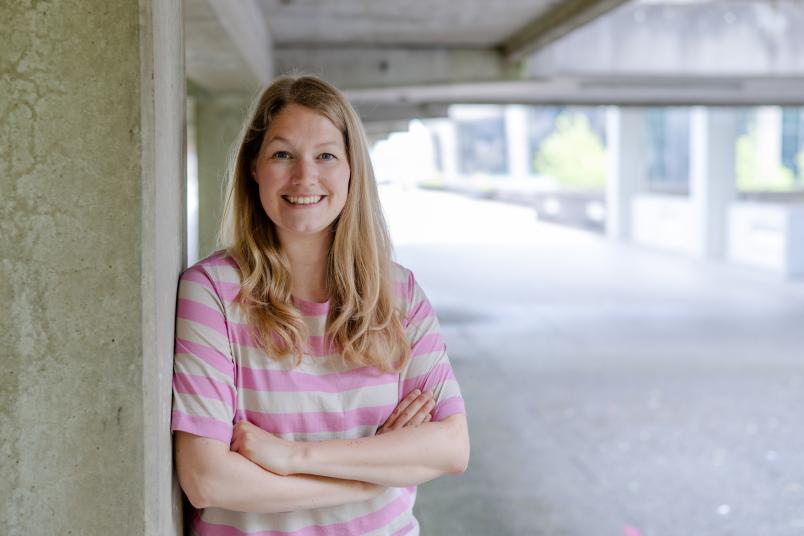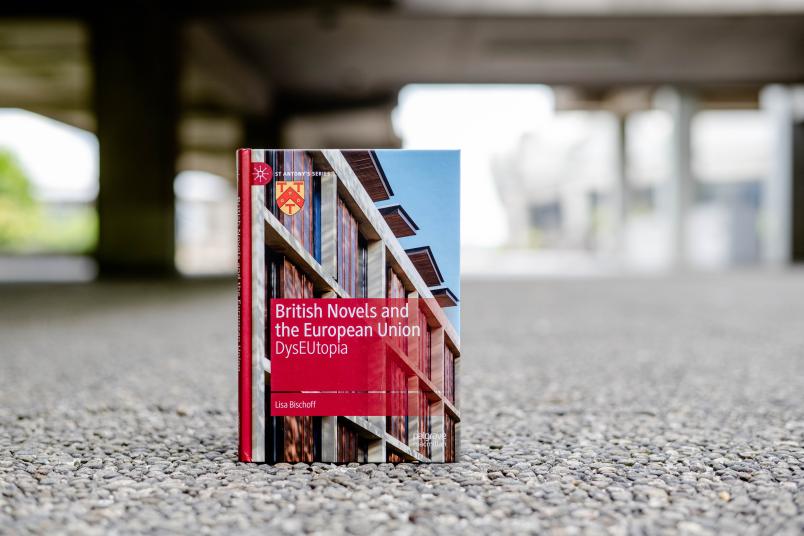
British Cultural Studies
Brexit anticipated
What fiction tells us about Britain’s relations to the European Union
Eurosceptic dreams of an independent UK and nightmares of faceless EU bureaucrats are not confined to the world of politics, public opinion and the media. Those tropes have also found their way into the literary domain. From 1973 till now, around a dozen novels about the European integration project have been published in Britain. The threat of ever closer union and the fear of a European Superstate, as they prevail in political and media discourses find their expression also in these narratives. In her book “British Novels and the European Union: DysEUtopia”, which is based on her research carried out during her PhD at Ruhr University Bochum, Lisa Bischoff analyses eight Eurosceptic novels, asking: How is the EU represented in British fiction?
“Overall, the novels, mostly political thrillers, paint a grim picture of the future European Union and can clearly be assigned to the Eurosceptic tradition – some even anticipate Brexit”, summarizes Bischoff her findings. Most of the novels have been written by authors who are well-known in politics and society. They include, for example, Michael Dobbs, known for the “House of Cards” or Stanley Johnson, father of Boris Johnson.
The Fear of a European Superstate
In the novels, Britain has become a member of a federal, fully-integrated EU superstate. In the course of the novels, the protagonists decide to rebel against the alleged misdoings of the EU. In some, this leads to Brexit.

The novels thereby reflect and draw from established cultural, economic and political arguments and tropes that can be found, for instance, in speeches by Margaret Thatcher or David Cameron. In line with these discourses, the supranational system of the EU – depicted as a federal superstate and excessive bureaucracy – is represented as a threat to Britain’s political system, its institutions and principles. The depictions are further powered by historical narratives, myths and specific readings of British and European history. “Especially myths of origins and stories about war time heroes, Westminster parliament or the Second World War hold great sway in the novels”, explains Bischoff.
DysEUtopia
What is more, the Eurosceptic novels do not only reflect and expose, but rather extrapolate Eurosceptic fears, representing the EU as a nightmarish dystopian state. “In my book, I call them dysEUtopias”, says Bischoff. The dys-EUtopian states are marked, for instance, by constant surveillance, fearsome security services, media censorship, propaganda and the re-writing of history. “They bear close resemblance with the societies depicted in classic dystopian fiction by Orwell or Huxley”, explains Bischoff.
The novels thus carry Eurosceptic fears to a next level. By focusing on novels, Bischoff’s book attributes a potentially transformative role to fiction. She is convinced: “Even if the novels’ potential to influence political attitudes and opinions is hard to quantify, they provide us with worthwhile insights into how people feel, think and argue about EU politics and EU membership. The analysis of these representations also helps us to understand the underlying tensions of the Brexit vote.”